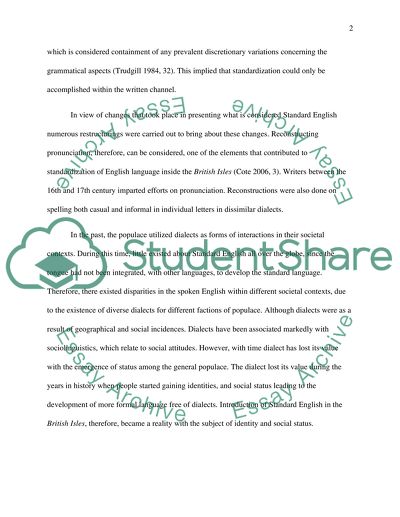Cite this document
(Standardization of English in the British Isles Essay, n.d.)
Standardization of English in the British Isles Essay. https://studentshare.org/history/1395077-coursework-essay
Standardization of English in the British Isles Essay. https://studentshare.org/history/1395077-coursework-essay
(Standardization of English in the British Isles Essay)
Standardization of English in the British Isles Essay. https://studentshare.org/history/1395077-coursework-essay.
Standardization of English in the British Isles Essay. https://studentshare.org/history/1395077-coursework-essay.
“Standardization of English in the British Isles Essay”. https://studentshare.org/history/1395077-coursework-essay.


